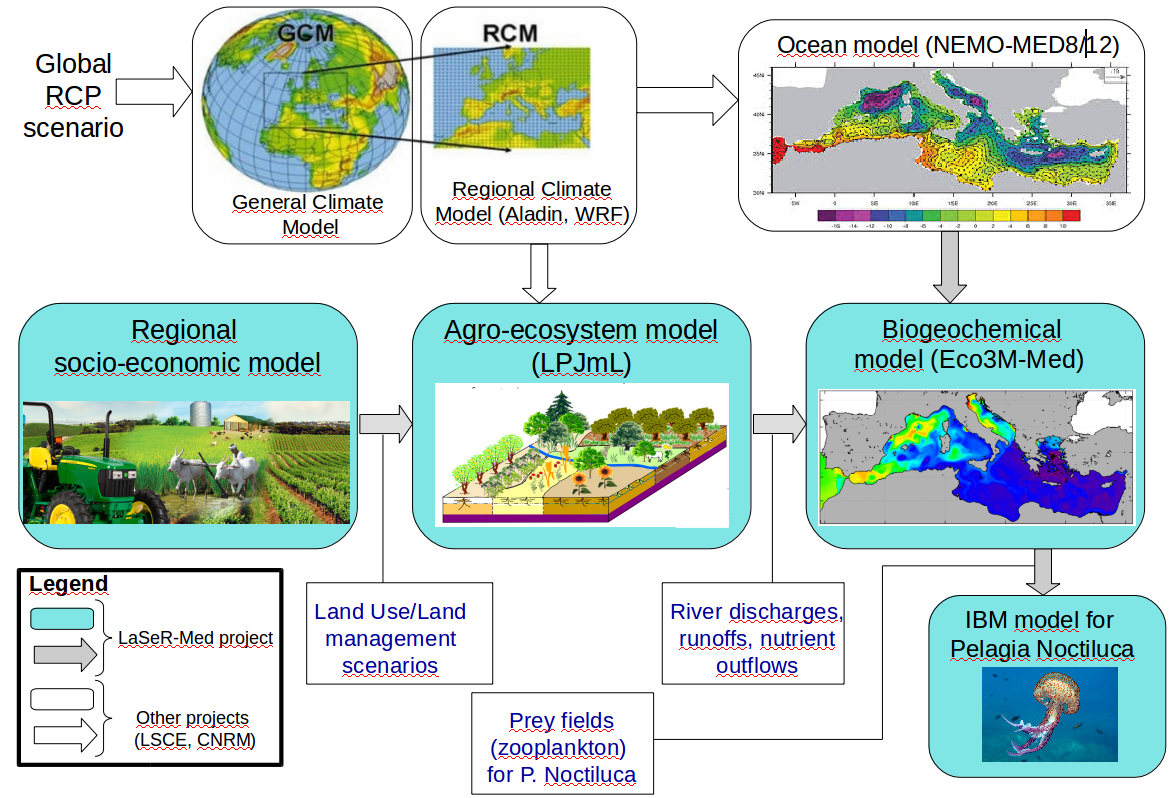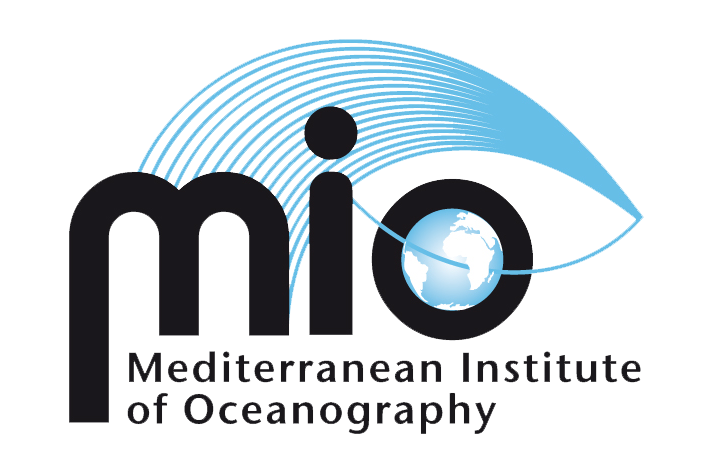LaSeR-Med - Land & Sea Responses to global change in the Mediterranean Basin
Towards an integrated prediction of Land & Sea Responses to global change in the Mediterranean Basin - 2016-2019
PI: Melika Baklouti (MIO); co-PIs: Alberte Bondeau (IMBE), Dominique Ami (AMSE)
Funded by OT-MED labex
Involved laboratories: MIO, IMBE, GREQAM/AMSE, CERGAM, INRA (ECODEV)
Main external partners: LSCE, CNRM
The ecosystems of the Mediterranean Basin (MB) form a complex and unique network of terrestrial and marine biota. They are heavily exploited and impacted by agriculture and forestry, by urbanization and tourism, by fisheries and other marine resource use. Ecosystems play a key role in sustainable regional development.
Their management should benefit from science-based assessments of environmental risks and vulnerabilities.
The LaSeR-Med project is a first step towards this objective: it aims at analyzing the influence of climate change combined with land-use scenarios derived from socio-economic scenarios on food sufficiency using an integrated process-based model of the key elements of the coupled system (Fig 1).

Fig. 1: The integrated model and the different inputs/outputs connecting the different sub-models. Ocean dynamics used for the coupled physical-biogeochemical ocean model is described in Hamon et al. (2016) for the hindcast with NEMO-MED12 and in Seuvault et al. (2014) and Darmaraki et al. (2019) for the RCP8.5 climate scenario with NEMO-MED8.
Main objectives
- predict and analyze through relevant environmental indicators, the effects of climate change on key ecosystem services provided by the terrestrial and marine ecosystems. Forecasts of changes in the agro- and marine ecosystems of the MB for the next decades with the integrated model (Fig.1) will be produced, in which the ocean physics and the land components will be forced by the same regional RCP climate scenario.
- Analyse the effects of land-use scenarios derived by a socio-economic model which aims at ensuring some level of food sufficiency for the Mediterranean populations in a context of climate change and population increase. These scenarios will force the agro-ecosystem model and indirectly impact the oceanic model through rivers discharge and water runoffs.

